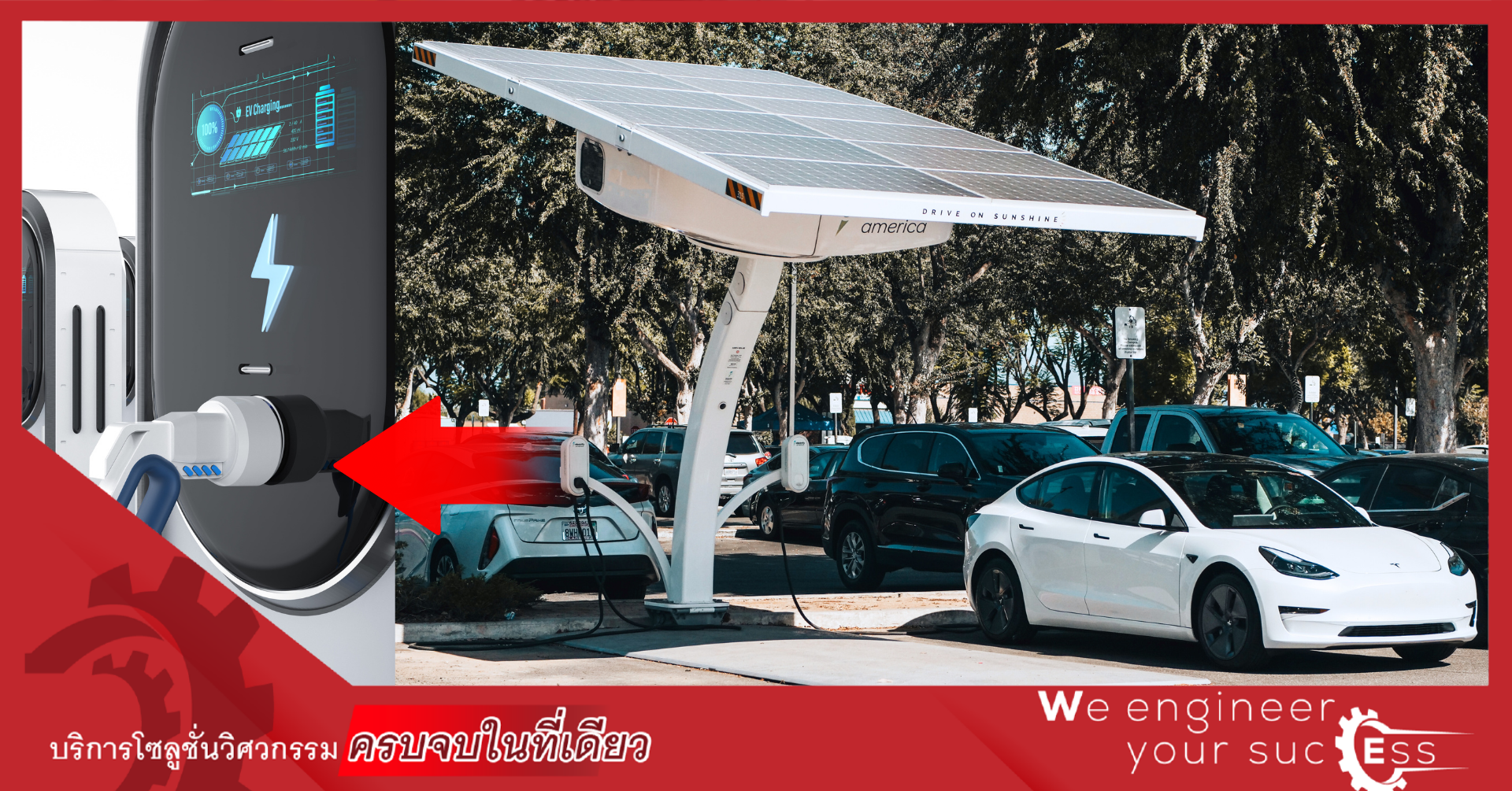As electric vehicles (EVs) continue to rise as the star of the automotive world, the EV Charger has quickly become a must-have for every EV owner. But what if every time you plugged in your car, you weren’t pulling power from the grid, but from the sun instead? That’s the real charm of pairing EV Chargers with Solar Cells.
EV Chargers: The New-Age Gas Pump Powered by the Sun
EV chargers serve a role similar to the old gas pump, but instead of fossil fuels, they deliver electricity. They connect to home power systems, office buildings, or public charging stations to recharge EV batteries, while ensuring safety with protections against overcurrent, leakage, and overheating.
The three main types of EV chargers include:
- AC Charger (Normal Charge) Slow charging, takes several hours, ideal for homes and offices.
- DC Charger (Fast Charge) Fast charging within 30–60 minutes, commonly found in public charging stations.
- Portable Charger A mobile solution that plugs into a standard household outlet, useful in emergencies.
Solar Cells: The Energy That Shines on Every Roof
Solar cells convert sunlight into electricity — clean, carbon-free, and free to use after installation. Pairing solar panels with an EV charger is more than a technological match; it’s a lifestyle choice that’s both smart and environmentally responsible.
Why EV Chargers + Solar Cells Are the Perfect Match
Charge for free after initial investment – Power your car directly from midday sunlight.
Double carbon reduction – From both driving EVs and avoiding fossil-fuel-based electricity.
Energy independence – No worries about fluctuating electricity bills.
Smart energy lifestyle – Align your charging schedule with peak solar production.
Practical Applications
Eco-Friendly Homes: Install rooftop solar panels with an EV charger to power your car during the day and store excess energy in a home battery for nighttime use.
Sustainable Businesses: Design solar-powered charging stations for malls, offices, or EV hubs to attract eco-conscious customers while enhancing brand image.
Real-World Example in Thailand
Thailand has already begun rolling out solar-powered EV charging stations, both for businesses and homes, aimed at building long-term sustainability.
A notable case is SCU Power, which developed a “Solar + BESS Charging Station”. This all-in-one solution integrates solar panels, battery energy storage (BESS), and EV fast charging into a compact containerized system. With an intelligent energy management system (EMS), it can operate both on-grid and off-grid, ensuring efficient, fast charging for EVs.
(Source: scupower.com)
Pairing EV chargers with solar energy is more than just an alternative charging option — it’s a pathway toward a clean energy future that is already within reach. From eco-homes to commercial solar charging hubs, Thailand is proving that this vision can be a reality. And this is only the beginning. Stay tuned with WCE to follow the next wave of clean energy innovations reshaping the way we live, drive, and power the world.


